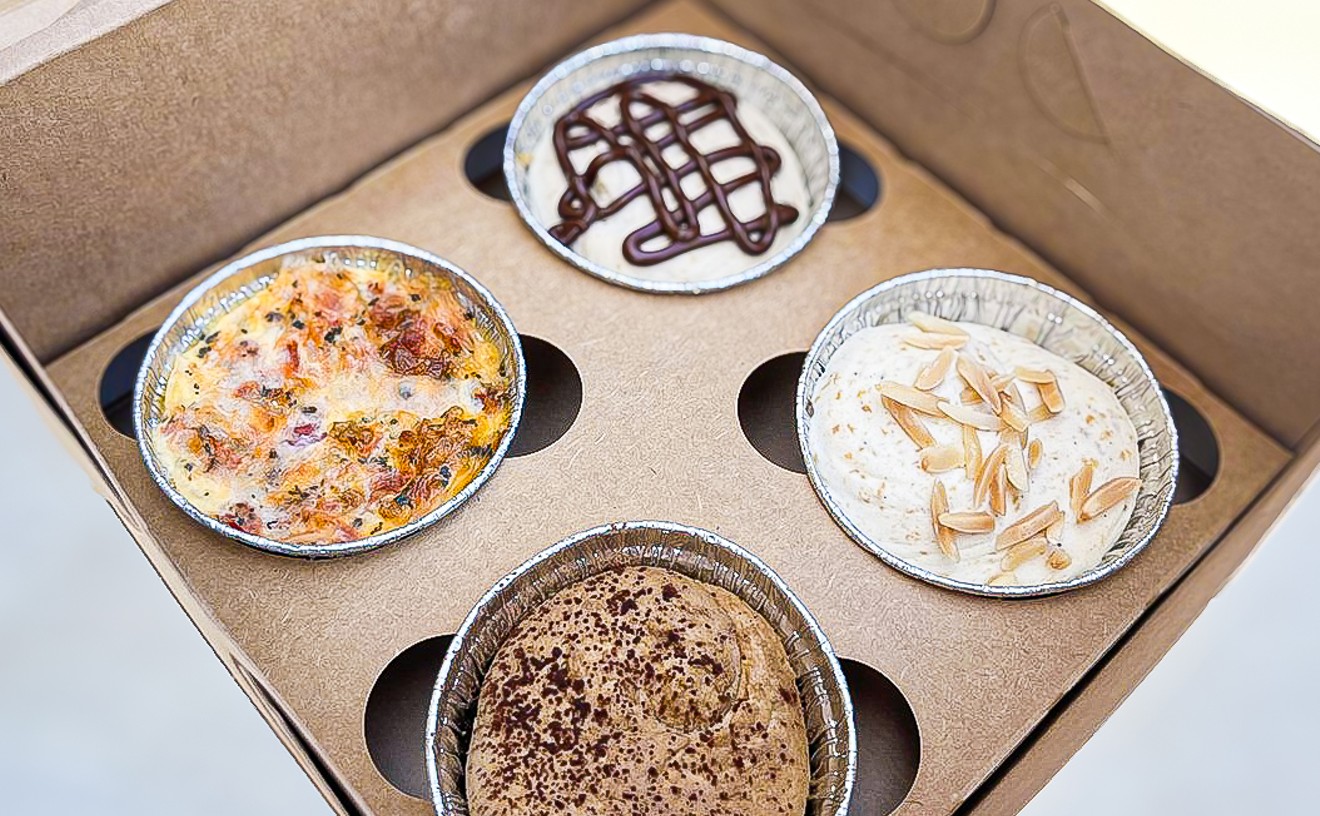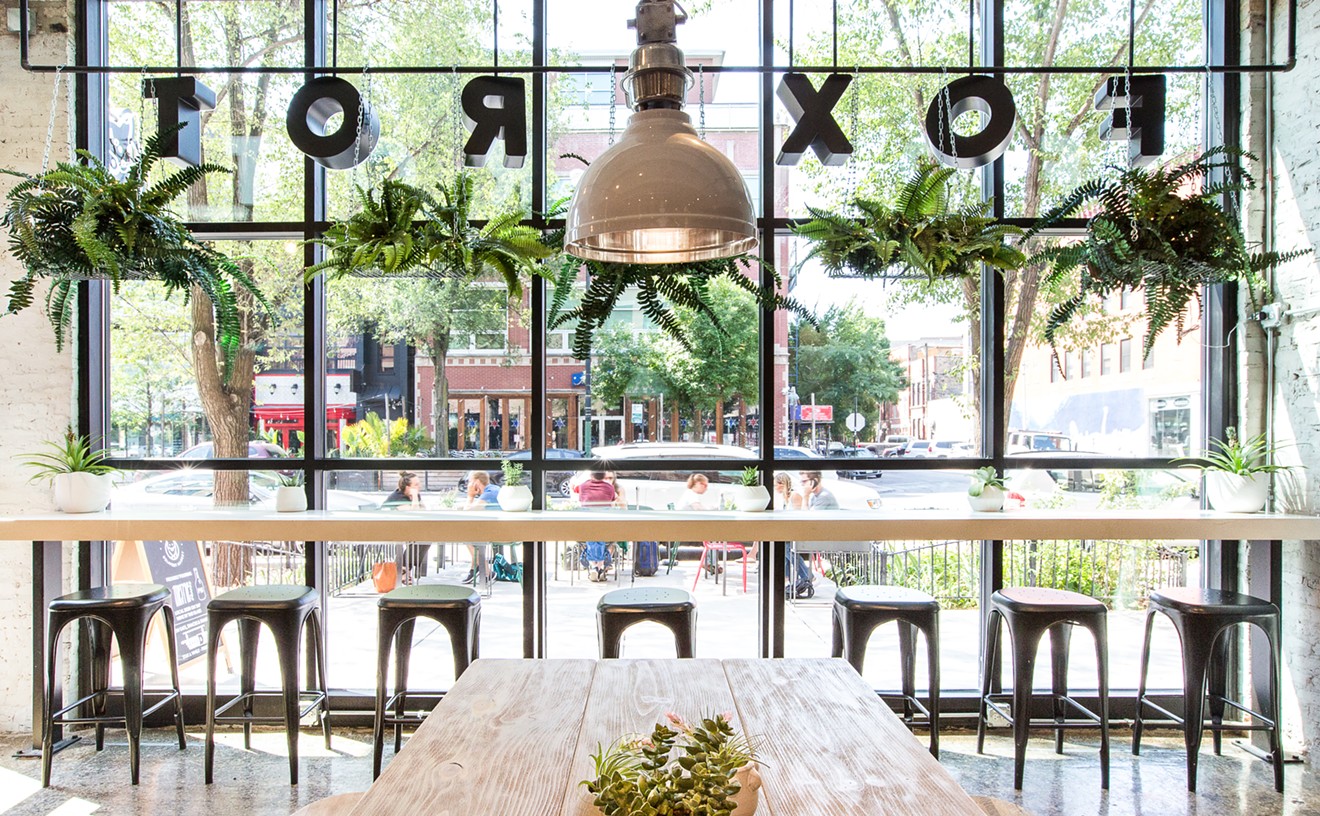He then suggested this week's topic.
The frustrations arising from a finite number of seats, the uncertainties of weather and traffic, capricious patrons and all the other ifs and buts related to mapping out a restaurant's operations each night may not be apparent to those crowding around the maître d' stands clamoring for a table. Everyone in the service industry, however, understands that catastrophe lurks by the entrance.
"That front door is an animal," says Dan Riley, manager at Cuba Libre. "We have a prewritten script to start the night, every night, but you can throw that out by eight."
We instantly recognized the worth of Rathbun's proposal. Reservations provide guidelines for the number of staff to call in, the ingredients to prepare and so forth. The process of filling reservations seems easy enough, of course. The headaches begin when people don't show up for dinner, arrive late, bring a few extra guests or walk in unannounced and demand service. The ripple effect of each little front-door dilemma creates very real losses for a restaurant.
And it was that realization, rather than the implied threat of deboning by Abacus' chef, that led to this week's Burning Question.
No-shows are a constant problem. "I guarantee everybody in town has no-shows on the first seating," claims Al Biernat of, coincidentally, Al Biernat's. "We've had at least 50 people no-show the last four Saturdays in a row." As a result, tables sit empty until the next seating. Even worse, restaurants must turn away other paying customers when a table is booked. "The most damaging thing you can do is tell someone a seat is not available and then it sits empty," Riley explains. "You become a casualty at that point."
Casualties come in two forms: the loss of good will and the loss of revenue--although he may be alluding to the dangers of under-worked wait staff loitering in the back rooms and, with nothing else to occupy their time, plotting some diabolical scheme to overthrow the city and enslave its citizens or open a new theme restaurant.
Fine dining establishments in particular thrive on service and accommodation. Shoving people back out the door or dismissing them on the phone, well, that's the sort of thing that irritates potential customers.
A bit of personality and professional grace often soothes the bitterness of patrons forced to wait for a table or wander over to another venue. That's why a good front person--Biernat, Michel Boutemy de Guislain of Popolos and Brandy Gomez at the nightclub Sense are outstanding examples--is so valuable. It's difficult, however, to recoup revenue lost to no-shows.
"I could do $30,000 each night," Biernat says, "so you see how much each seat is worth to me."
We counted 210 chairs in his restaurant, by the way, including the one that fell victim to our thoroughness (something to do with tequila shots and what we assume was an imperfection in Biernat's floor). That adds up to $142.85 in lost potential revenue each time someone no-shows. Yeah, we know they generally run two seatings at the restaurant and therefore we should probably adjust our figures a bit, but we became writers to avoid that kind of analytical detail. The cost of no-shows varies from place to place, anyway, but may reach $300,000 or more over the course of a year for upscale establishments.
As a result, many chain restaurants no longer accept reservations. Even some trendy establishments, such as Fireside Pies, cater solely to walk-ins. "There's no way to hold a table," explains Fireside chef Nick Badovinus. "The real estate has such a premium." Cuba Libre combats no-shows by enforcing a strict reservation policy. If patrons don't arrive within a 15-minute window, the table reverts back to "available" status. They also send reminders.
"We call and confirm the reservation that day," Riley says. "But even that doesn't work sometimes."
A few restaurants tinkered with punitive measures, such as requiring credit card numbers to hold a reservation, then charging a fee for no-shows--not a very popular measure. Others encourage walk-ins, thus generating a steady flow of impromptu diners ready to fill any no-show seats. Biernat plays a complicated game of overbooking. He generally allows 57 reservations for 53 tables, assuming four to five parties will no-show each night. Yet he understands the dangers involved in this strategy, especially when applied to the first seating. Early-evening delays mess up the second and third turns. "You can imagine how that can snowball," Badovinus says. "That's where relationship building comes into play--and building that relationship quickly."
It also helps to have a decent bar.
"Bars are a peacekeeper," Riley acknowledges. "It gets them somewhere social and away from the front door." Barring their escape, presumably. "And they're involved in the dining experience."
"For the second seating, a 20-minute wait at the bar isn't bad," Biernat agrees.
Hell, we're content to spend the evening there.
The only real solution, however, involves patrons picking up the phone and informing the restaurant if they must cancel a reservation or end up stuck in traffic, running late.
Simple.
We've answered the question, proposed a solution and emerged intact. Now, there was somewhere we were planning to go tonight...










